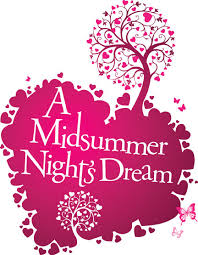Written by the most influential English poet, author, and novelist of all time, this sonnet is a fine work of William Shakespeare. Known as the national poet of England or ‘ Bard of Avon ‘( poet of Avon) because he was born in Avon , he has written around 154 sonnets, 39 plays, and 3 long verse poetry work. He primarily wrote most of his works between 1589 and 1630 which varied in different genres from historical to comedies and tragedies. His notable works include Hamlet, Macbeth, Romeo and Juliet, The Tempest, Othello, The Merchant of Venice, A Midsummer Night’s Dream, Twelfth Night, etc. His work has been translated into many languages and thus remains the most popular and irreplaceable part of English Literature.
Born to John Shakespeare and Mary Arden as the third of eight sons, Shakespeare attended the King Edward VI Grammar School in Stratford, where he learned Latin. He got married at the age of 18 to Anne Hathaway, who was 26 at that time. Together they had three children, two daughters, Susanna ( the eldest one) and Judith, and a son named Hamnet ( twin of Judith). However, Hamnet died at the age of 11 due to some unknown reasons.
Afterward, in 1576 he came in touch with James Burbage, a theatre owner, and thus started his journey as a theatre worker during his initial days. During this period, England was ruled by Queen Elizabeth. By the 1590s, theatres were established well, and acting and playmaking were worth paying jobs. Hence Shakespeare maintained his family well. He performed in Ben Johnson’s plays ‘ Every Man in His Humour ‘ and ‘Sejanus.’ He worked with the theatre called The Lord Chamberlain’s Men. He was also a shareholder there and thus received ten percent of all profits. Later on, The Lord Chamberlain’s Men received official status as the King’s Men in 1603 and received royal patent and protection. It’s been said that he lost his father in 1601, and in 1609, he moved to his hometown, where he resided until his death on 23 April 1616. He was buried in the chancel of the Holy Trinity Church two days after his death. His tomb’s epitaph read.
“Good frend for Iesvs sake forbeare,
To digg the dvst encloased heare.
Bleste be yͤ man yͭ spares thes stones,
And cvrst be he yͭ moves my bones.”
Interpretation:
Good friend, for Jesus’ sake forbear,
To dig the dust enclosed here.
Blessed be the man that spares these stones,
And cursed be he that moves my bones.

His wife too died in 1623 before seeing his First Folio edition of his works and was buried next to him.
It’s worth noteworthy that he never wrote to be read or studied but to be viewed on stage. His plays and poems passed many messages to his readers about humanism and secular views. We also see the impact of the Renaissance in his works. He stretched and touched the boundaries of literature with history, politics, as well as personal experiences of daily life very well.
That’s why one of his fellow authors said: “We wondered, Shakespeare, that thou went’st so soon / From the world’s stage to the grave’s tiring room.”
Analysis of Sonnet 18: Shall I compare Thee to a Summer’s Day
This sonnet is similar to Shakespeare’s other sonnets in its form. That is, it follows all typical parameters of that of a Shakespearean sonnet. Firstly it consists of 14 lines divided into three quartets and one couplet. It’s written in iambic pentameter with rhyming scheme ABAB CDCD EFEF GG. There is a good use of simile, personification, etc. We also see the change in the poet’s tone, a sharp turn, and a change in the poet’s mood in the last couplet, just like in other sonnets.
This sonnet is one of the most famous ones among Shakespeare’s sonnets. It begins with a question and continues in a conversation form between the poet and his friend or beloved. Throughout the poem, the poet addresses himself as I and his beloved or friend with thee ( you). In this sonnet, the poet talks about his beloved’s beauty.
There is a thematic reference to Summer’s day in this poem. Summer’s Day here refers to the Summer season in England. As summer is awaited, beautiful, and full of joy in the poet’s country, that’s why he compares his beloved’s beauty with the summer season. As summer is the season of love, youth and energy, therefore, the poet addresses his beloved similarly to summer.
The theme of the poem is the eternal love that the poet has for his beloved’s beauty, which is well expressed throughout the poem very smoothly. Although there is no particular description of the poet’s beloved or her beauty in this or any other sonnet, we see the efforts the poet is making to make his love and lover immortal.
Line by Line Explanation Shall I compare thee to a summer’s day
Shall I compare thee to a summer’s day?
Thou art more lovely and more temperate:
In these lines, the poet asks his beloved if he should compare her with summer, although she’s more beautiful, restrained, or balanced than a summer’s day. First, he asks if he should compare her or not, then he himself tells her that she’s even more beautiful than summer. Summer, as we already know, has a significance of beauty, joy, and energy.
Rough winds do shake the darling buds of May,
And summer’s lease hath all too short a date:
He then personifies summer and says that its rough winds often shake and blow away new blooming young buds of may, and summer doesn’t even have much time. Summer has a very short lease period, and thus it ends up very soon.
Sometime too hot the eye of heaven shines,
And often is his gold complexion dimm’d;
Here poet further says that sometimes the Summer is too hot, the eye of heaven means sun. The sun shines too much that the weather becomes too hot, and sometimes it hides behind the clouds, and its complexion that is heat and light becomes dim often.
And every fair from fair sometime declines,
By chance or nature’s changing course untrimm’d;
Every beautiful thing always loses its beauty after some time, whether by chance, fate or due to nature’s aging. Here we see an eternal truth, and that is, nothing remains in its superior form for always as time passes, everything loses its superiority and eventually becomes inferior. The reason for losing this beauty or superiority or any other possession can be an accident, or it’s aging over the course of time.
But thy eternal summer shall not fade,
Nor lose possession of that fair thou ow’st;
Poet further says: your beauty is eternal, my beloved; it will never fade. You will never lose possession of this beauty of yours.
Nor shall death brag thou wander’st in his shade,
When in eternal lines to time thou grow’st:
Even death cannot boast about his victory over you, after taking you under his shade. Even in eternal life, you will keep pace with time. That means even death can’t win over you.
So long as men can breathe or eyes can see,
So long lives this, and this gives life to thee.
As long as men lives breathes and see this world, this poem will live long and give life to your beauty. Poet ends the poem by saying that these lines of his will live as long the humanity survives, and people will read this poem, and thus poet’s beloved will be remembered till eternity. In this poem, the poet immortalizes his beloved.
Some online learning platforms provide certifications, while others are designed to simply grow your skills in your personal and professional life. Including Masterclass and Coursera, here are our recommendations for the best online learning platforms you can sign up for today.
The 7 Best Online Learning Platforms of 2022
- Best Overall: Coursera
- Best for Niche Topics: Udemy
- Best for Creative Fields: Skillshare
- Best for Celebrity Lessons: MasterClass
- Best for STEM: EdX
- Best for Career Building: Udacity
- Best for Data Learning: Pluralsight













